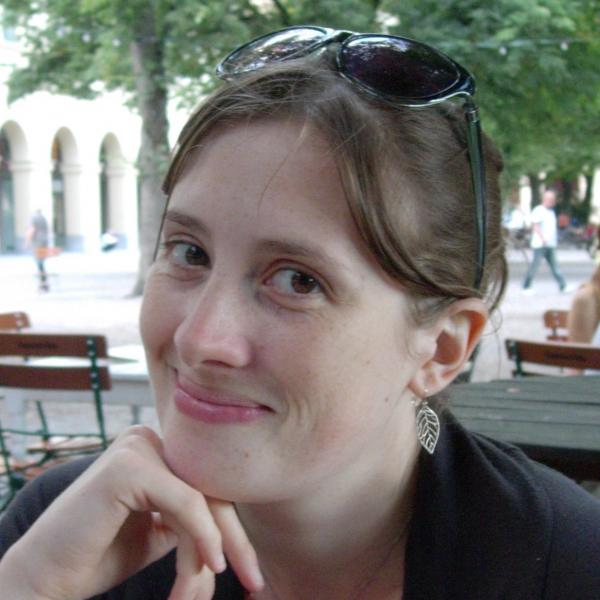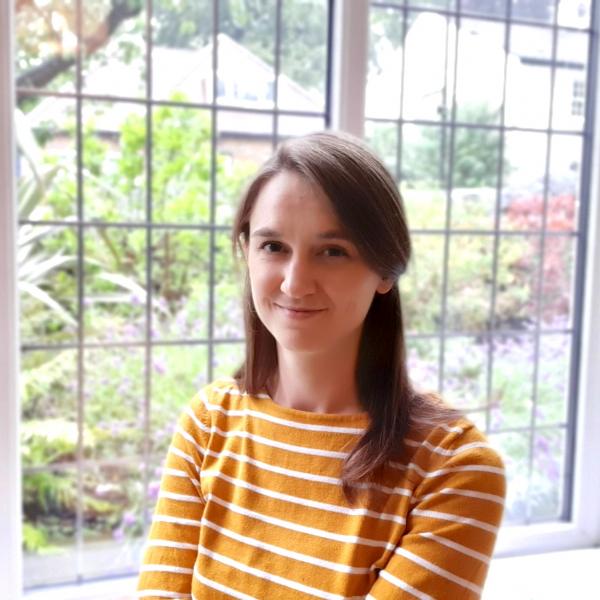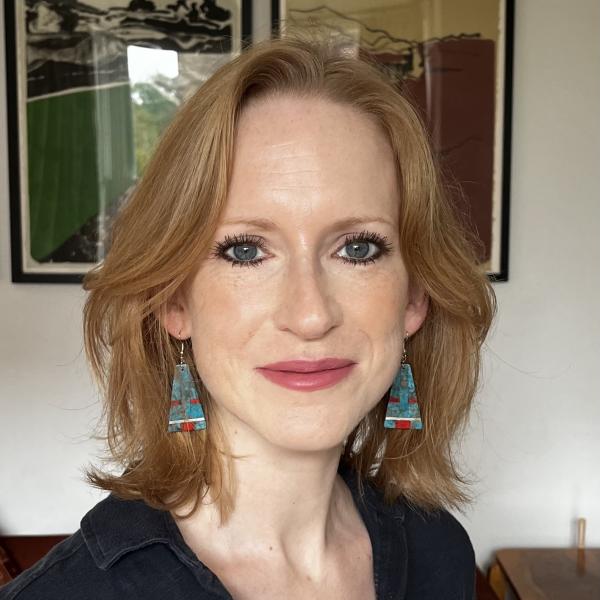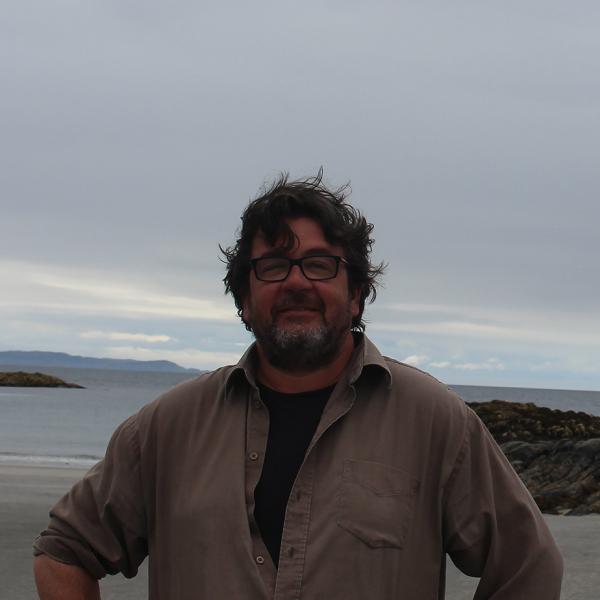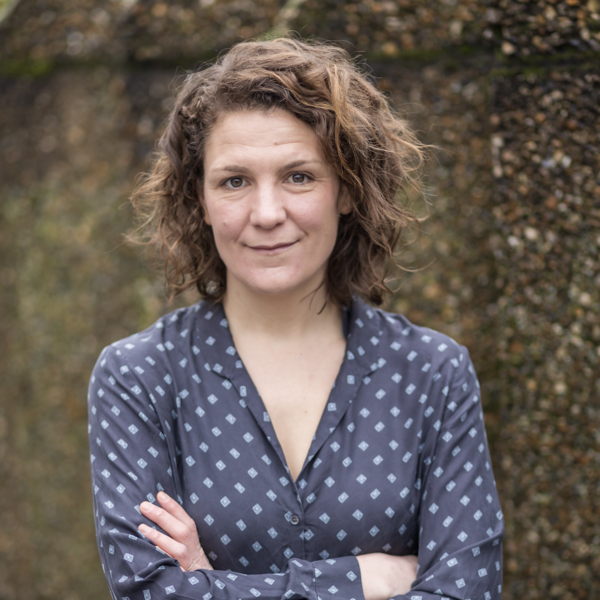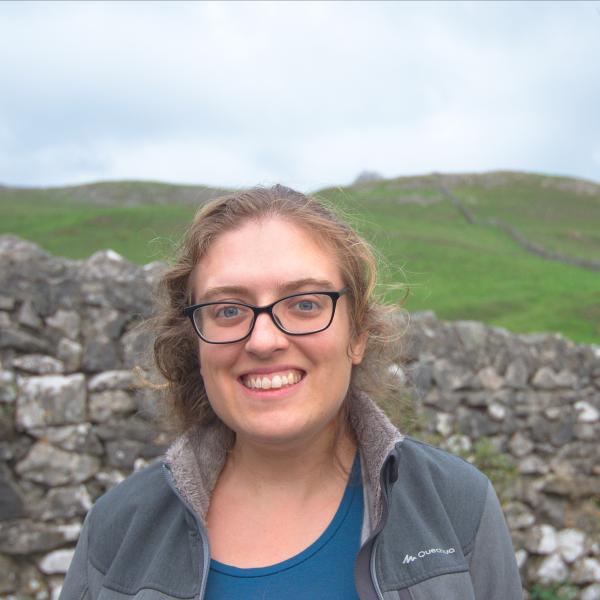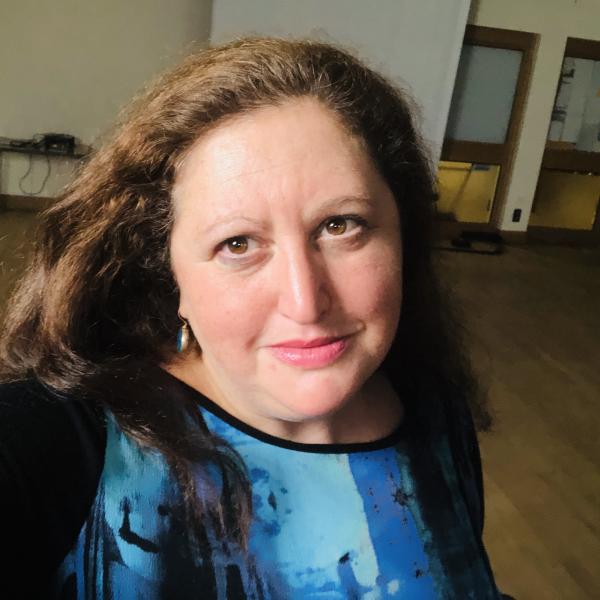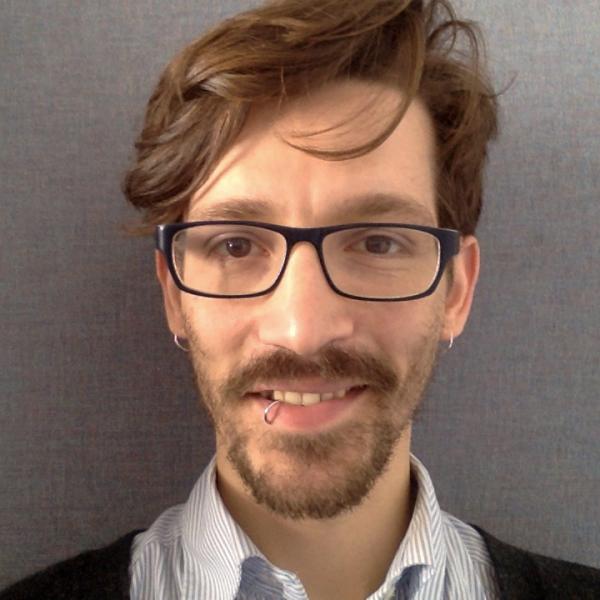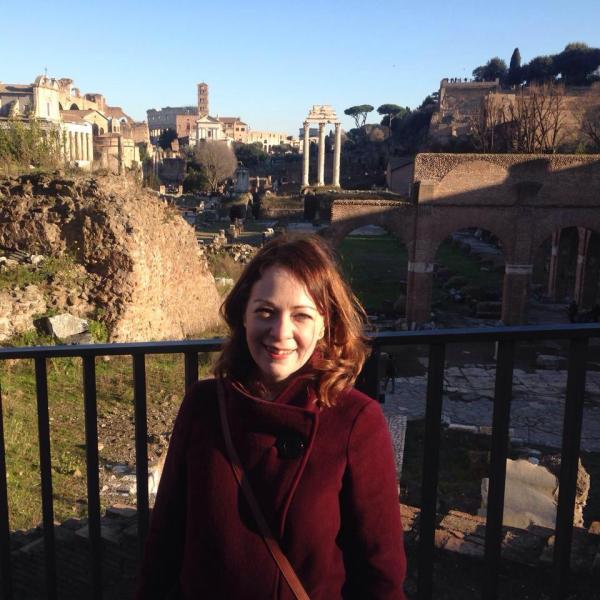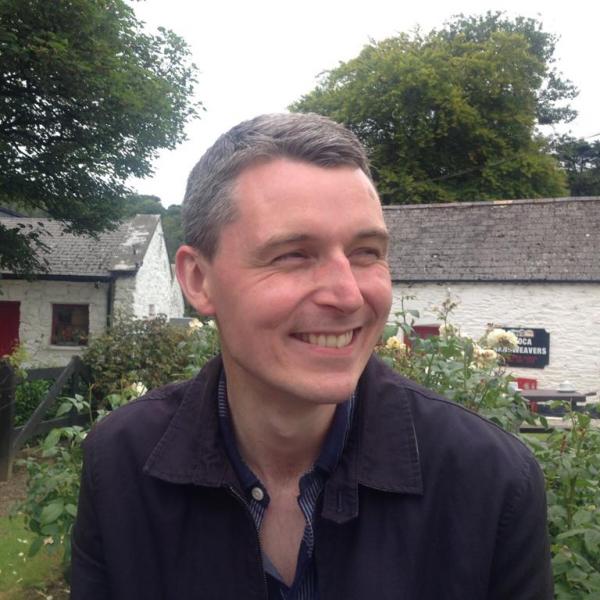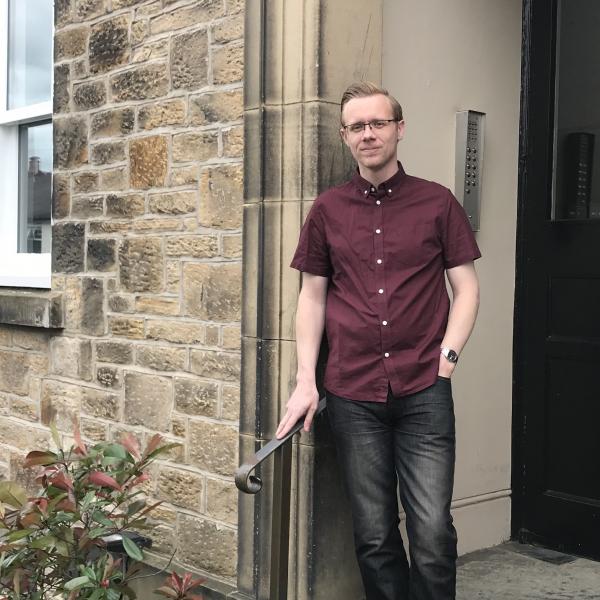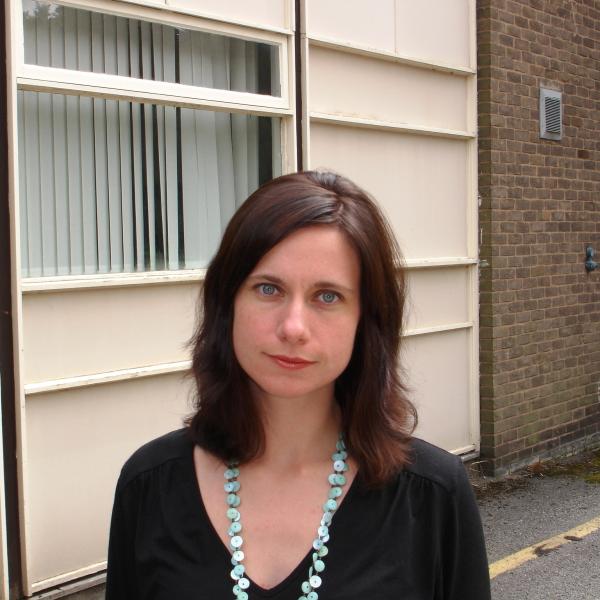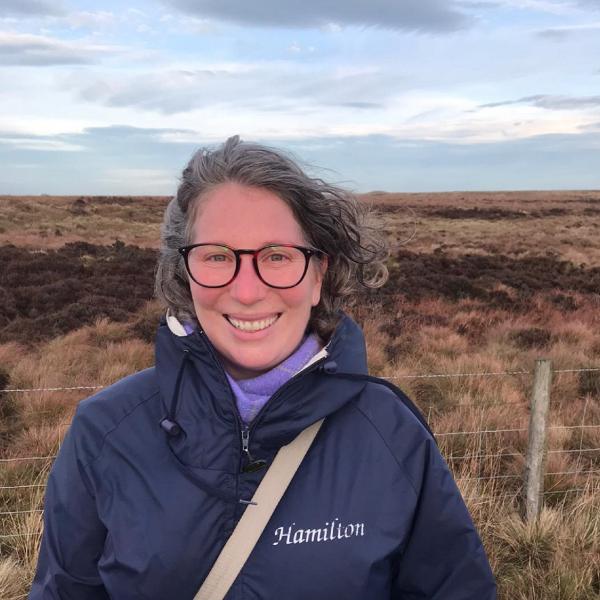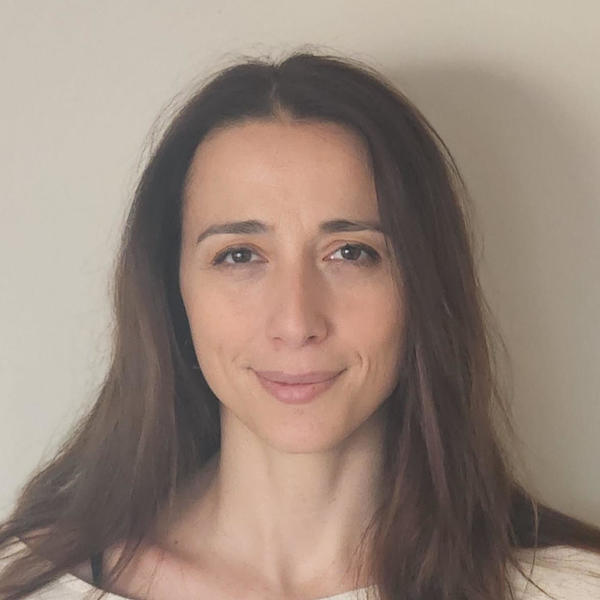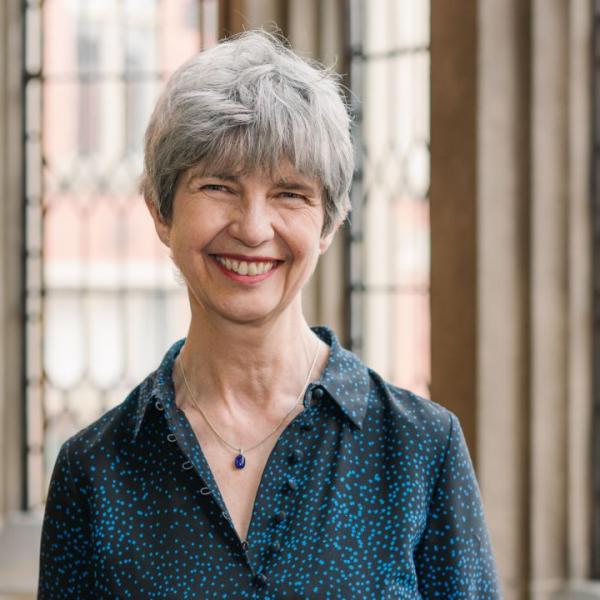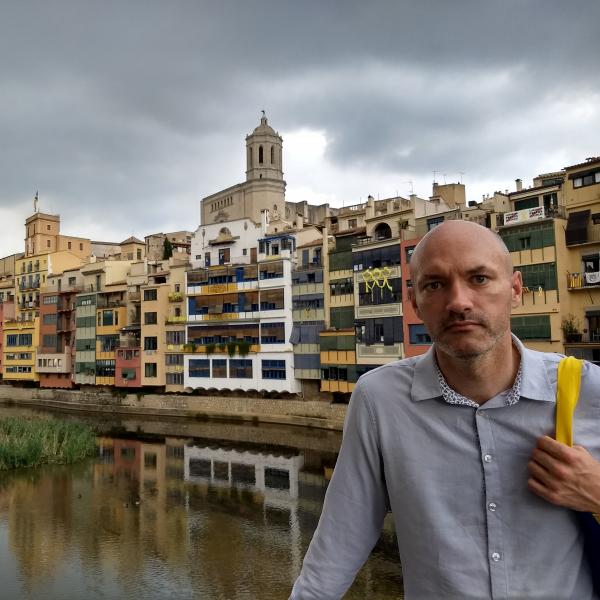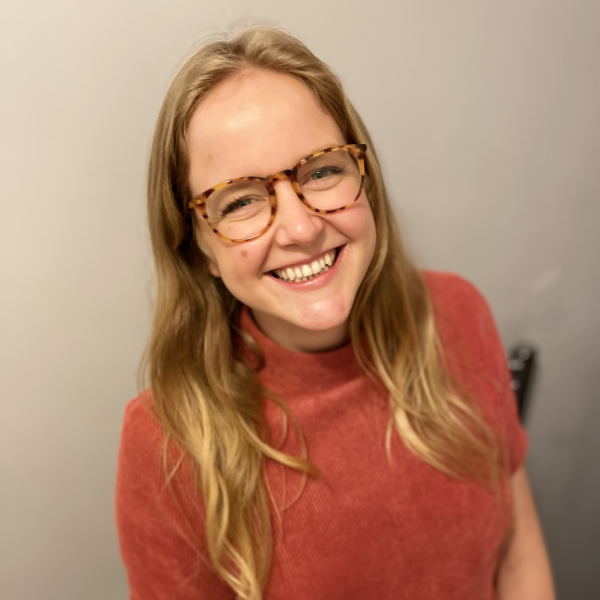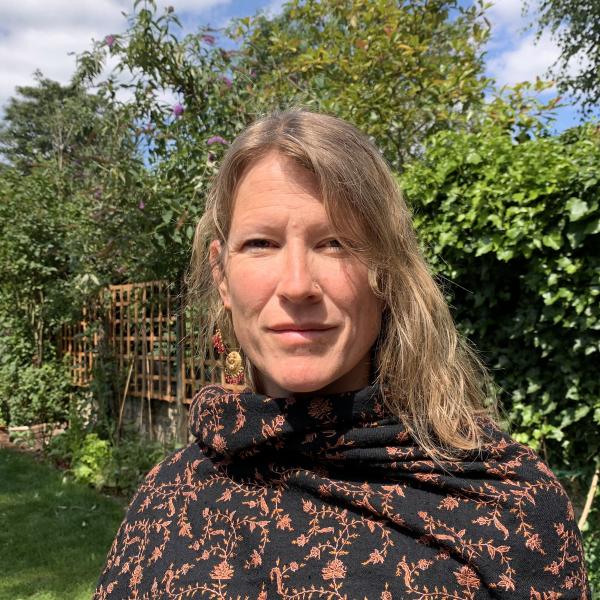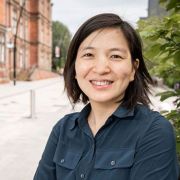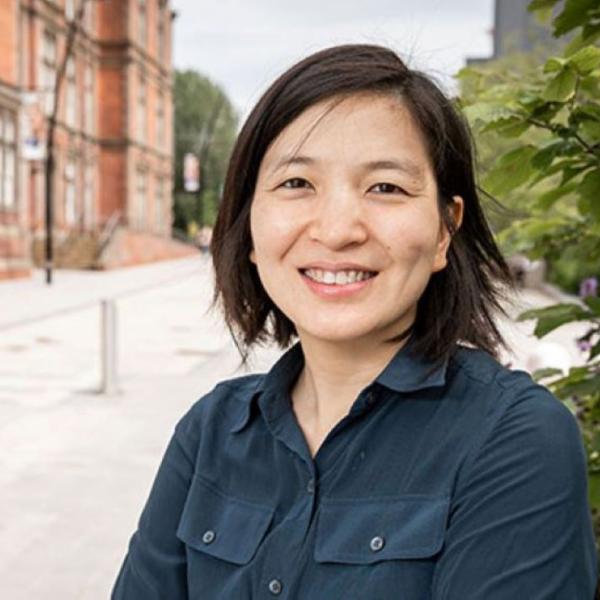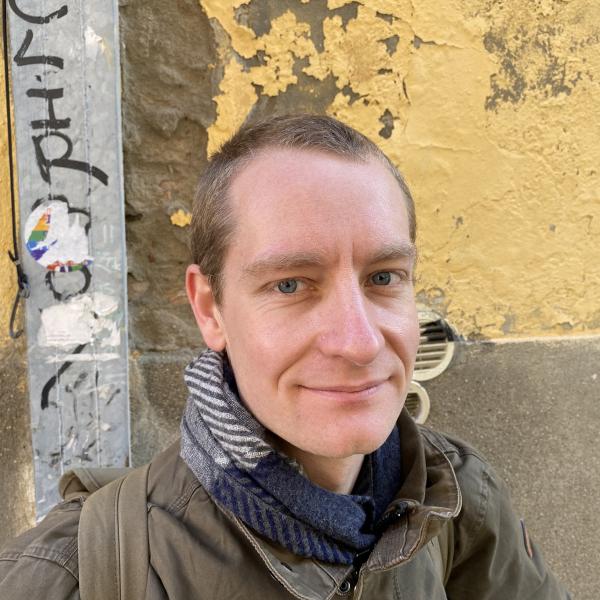Research strengths
The Department has strengths in Medieval, Early Modern, and Modern British and European History; American History; and Global History.
Medieval and Ancient
Mark's research interests include the afterlife, early Christianity in its Greco-Roman environment, Judaism, Islam, religion and art, religion, conflict and violence, politics and the modern Middle East. He also looks at the social-scientific approaches to interpreting ancient religious texts.
Mirela is also listed under Global
Mirela’s research focuses on written culture, multilingualism and cultural transmission in Byzantium and Central and Eastern Europe. She is currently working on a book entitled Inventing Slavonic: Cultures of Writing between Rome and Constantinople, which offers the first intellectual history of the earliest texts narrating the invention of the Slavonic alphabet. She is also interested in historiography and the politics of the middle ages in the modern world. To this end she is co-editing a book entitled Is Byzantine Studies a Colonialist Discipline?.
Martial's research interests range from the history of the Church in the Middle Ages and the Reformation to the history of urban societies in late medieval and Renaissance Germany and Italy.
He has worked beyond medieval and early modern history, on intellectual history, exile and - more recently - migrations. Building on this, he is currently embarking on a history of the global citizen from c.1200 to c.1600.
Casey is also listed under Global
Casey's main research focuses on how the experience of involuntary migration influences the development of ethnic, national, and religious identity.
He combines insights from the social scientific study of migration with historical sources (textual and material) in order to reconstruct the political, social, and cultural development of ancient Israel and Judah as well as for the interpretation of the literature of Israel, Judah, Assyria, and Babylonia.
Danica's research centres on the history of Europe in the central middle ages, around 1000 to 1300. Her particular focus is the development and use of law at the time, and particularly ecclesiastical, or canon, law.
That interest expands to both the social and institutional aspects of religious and legal history.
Lidia’s main research interest is the social history of religion in the late medieval Mediterranean, i.e., how spirituality (particularly Christian) has influenced the development of social domains such as law, economics,or gender relations. Her current project explores changing popular opinion regarding judicial violence (i.e., torture, corporal punishments and executions), through an analysis of changes in secular and religious attitudes and emotional reactions towards it in the period ca. 1260-1360, using the Italian communes of Florence and Siena as the main case-studies.
Lidia’s other interests include the history of emotions, women and gender, and Oriental Christian communities (particularly Armenian and Greek) in Western Europe.
Early Modern
Michael is also listed under Global
Michael’s research focuses on the economic and social history of Britain and the Caribbean in the seventeenth and eighteenth centuries. He is especially interested in the role of merchant firms and banks in the City of London in developing and sustaining the system of Caribbean plantation slavery during this period. His current book project explores the London merchants who financed the development of African slavery and sugar plantations on the Caribbean island of Barbados in the 1640s and 1650s.
He has also published on the English East India Company’s involvement in the trafficking and deployment of enslaved labour in the Atlantic and Indian Ocean worlds during the seventeenth and early eighteenth centuries.
Kate’s research focuses on eighteenth-century British society and culture.
She has a particular interest in humour and laughter in this period, and how they played a part in social practices and political processes, but this work has also drawn in wider themes relating to print culture, sociability, gender, race, and public politics.
She also has an interest in approaches and methods associated with social network analysis in historical contexts.
Tom's research interests lie in seventeenth-century British history, with a particular interest in commercial policies, discourses and practice. In 2008 he published a biography of Benjamin Worsley (1618-1677), an individual most famous for having claimed to have drafted the Navigation Act of 1651, but whose diverse interests also included experimental science, alchemy and spiritual introspection.
His current research focuses on social and commercial relations within early modern merchant communities, particularly the Merchant Adventurers.
Charmian is a social and economic historian of England between 1500 and 1750. She is also a gender historian. Her research is primarily concerned with recovering everyday experiences and identities – particularly of those who we rarely hear from such as women and the poor – from legal records.
Anthony's main area of research has been the religious, political and intellectual history of England 1560-1700 – his most recent book in this field is England’s Second Reformation: the battle for the Church of England 1625-1662 (Cambridge, 2021).
He is currently working on the life and career of Thomas Wentworth, 1st earl of Strafford (1593-1641) and the relationship between language, image and power in early modern English and Irish politics, and also a study of religious, cultural and political relations between Britain and mainland Europe between 1560 and 1660.
Further ongoing projects include studies of rhetoric and disputation in Elizabethan Cambridge, of the nature and uses of anonymity in early modern European writing and publishing, and of perceptions and (self)representations of Asia in the nineteenth and twentieth centuries
Caroline is also listed under American, Global
Caroline's research focuses on Aztec-Mexica and early American history and the Atlantic world (especially Mexico), with a particular interest in issues of gender, violence and cultural exchange.
She is currently working on a book about Indigenous Americans who travelled to Europe and beyond in the sixteenth century.
James' research examines the relationship of legal structures (laws, practices, institutions) to the daily practices of economic life, with a special focus on early modern Italy. He has previously worked on petty crime and small claims litigation in Venice, and on retailing in the medical sector in Florence.
His current project 'Debt in Venice' is a microhistory of economic practice in the seventeenth century. Adopting anthropological and sociological approaches to the study of the economy, this project uses case studies from legal archives to explore how people experienced the credit market at the everyday level.
Neha is a cultural historian of Early-modern South Asia working on history of consumption practices, body, and affect. She focuses on themes of gender, self-fashioning, ethics and comportment, domestic spaces, botanical sciences, and production and transmission of culinary and medical recipes manuscripts.
Please note that Neha is unavailable for PhD supervision
Phil works on various aspects of the social and cultural history of England, Ireland and the wider world between the sixteenth and eighteenth centuries.
Current interests include urbanization and urban culture; citizenship and popular politics; intoxicants and intoxication; the history of language and its uses; and the social history of the Renaissance. His most recent book is Society in Early Modern England.
Modern British
Emily's research places the history of modern Britain within wider international and imperial contexts. She focuses particularly on the history of aid, development, and internationalism in the twentieth century and on connections between international humanitarianism and the British welfare state.
Emily is also interested in the ways history can inform contemporary debates about aid and development.
Lucy’s research interests lie in the social and cultural changes occurring in Britain during the 1950s, 1960s and 1970s. She is particularly interested in the spread of popular psychology during this period, ideas about emotional expression, emotional relationships and emotional health, and the development of a ‘confessional’ and ‘therapeutic’ culture in modern Britain.
Her research has focused on marriage and personal relationships in the 1960s and 1970s. She has worked on topics including the private lives of The Beatles, feminism and the commune movement. Lucy also has interests in the history of the welfare state in Britain as well as the history of mental health.
Adrian's main research interests are in the political, social and cultural history of twentieth-century Britain.
He has worked extensively on the national popular press in the decades after 1918, examining the ways in which newspapers both reflected and shaped attitudes to gender, sexuality and class. He has also worked on the press coverage of child sexual abuse.
More recently, his research has focused on democratic engagement since 1918, exploring how British citizens understood politics and how they viewed its relationship to their lives.
Esme is also listed under Global
Esme's research is on the politics of colonial difference and exclusion in the British Empire. She is particularly interested in the production of categories of otherness including those based around race, gender, religion and disability.
Her monograph, Missionary Discourses of Difference: negotiating otherness in the British Empire, 1840-1900, explores the difference of gender and race through the writings of British missionaries stationed in nineteenth-century India and southern Africa.
In particular, her focus is on the family and domesticity; sickness and medicine; and colonial violence; as key areas where anxieties around difference were particularly acute. Her current project extends this analysis by looking at disability and in particular deafness in nineteenth and twentieth century Britain and its empire.
The project focuses on the relationship between disability and race as categories of difference and on how this was played out in colonial contexts.
Julie's research interests lie in modern British political history, the history of extremism (with a focus on right-wing extremism in Britain), the construction of gender identities in the political sphere, and the history of mental health in times of crisis.
She has published widely on women, gender and politics between the wars, including the role of women in Britain's fascist movement, women and the peace movement, and gender and appeasement.
Chris is currently writing a history of illness deception in the twentieth and twenty-first centuries: Munchausen Syndromes and Modern Medicine.
This book charts the chronic faking of illness (Munchausen syndrome), deliberately making one's children ill (Munchausen syndrome by proxy), and faking illness online (Munchausen by internet).
These linked categories are related to diverse concerns in Britain, such as the expanding welfare state and National Health Service, the 'rediscovery' of child abuse in the 1960s and 1970s, and the anxiety created by online anonymity.
More generally, Chris is interested in the ways in which modern medicine and psychiatry influence and inform our everyday lives, from assumptions about who we are, the advice we are given, and the services provided for us.
This involves research in the history of the emotions, the history of anthropology and sociology, and the history of psychiatry, psychology, social work and medicine.
Julia is also listed under Modern European
Julia's main research interests lie in the history of social problems and policy in Britain and Western Europe in the late nineteenth and early twentieth centuries.
She has published on five main strands of her research: the history of the welfare state, private law, and especially torts; transnational history; marriage and the family and, the history of ideas about 'risk'.
She has recently completed a comparative study of conceptions of risk, workplace accidents and the welfare state in Britain, Germany and Italy, and her current research investigates the political history of marriage in Imperial Germany from transnational and global perspectives.
Caoimhe is also listed under Modern European
Caoimhe is currently engaged in two research projects in the field of Irish history. The first is a study of the children of the executed men of the Easter Rising of 1916. This explores issues of memory, state commemorative practices, the forging of personal identities in the shadow of national foundational myth, as well as the legacies of political violence.
Her second project is an emotional history of the Irish Revolution, which argues that political mobilisation was emotional in its roots, and that a distinct emotional regime emerged during the revolutionary period. She is also interested in using the methodologies of the history of emotions to trace the experiences of ‘ordinary people’ during the Irish Revolution.
David is also listed under American
David’s research interests lie primarily with media framing of historical events, with a particular focus on newspaper framing of political and social issues (1945-present). His main research projects have looked at: Anglo-American press coverage of genocidal events, 1945-1995; newspaper coverage of the Scottish independence referendum, and issues of gender in the output of the Scottish media; race and American boxing, particularly the works of journalist, Ted Carroll.
Please note that David is unavailable for PhD supervision
Colin is also listed under Modern European
Colin is working on a book on the history of political thought in Ireland under the Union (c.1798-1922). This project explores the impact of the Union on mentalities in Ireland, charting the range of particular political languages deployed by contemporaries, and explaining continuities and changes over time.
Conflict in Ireland was not simply the result of ancient hatreds: it was sustained by clashing interpretations of decidedly new political concepts. As such, Ireland is an illuminating case-study into how French Revolutionary political ideas such as representative government, republicanism, popular sovereignty, citizenship, and democracy became localised and assumed competing meanings among different groups during the nineteenth century.
The ‘Irish Question’ was not a static riddle, but provoked fluid and ever changing responses.
Simon is also listed under American, Global
Simon’s current research focuses on the struggle against South African apartheid, both within South Africa and around the world, and especially in Britain and the United States.
He has published on anti-apartheid activism in Britain, and is currently writing his first monograph, an international history of the use of boycotts and sanctions by the global anti-apartheid movement, provisionally entitled Laying Siege to South Africa: Anti-Apartheid Boycotts and Sanctions, and the Transformation of Global Politics.
David's research interests are in the political history of twentieth century Britain, focusing particularly on political engagement, extra-parliamentary politics and the history of the media.
Most recently, David has examined how the Women's Social and Political Union was narrated in popular and elite newspapers, exploring how the British public reacted to the campaigns of the suffragettes.
Currently, David is researching British perceptions of the Soviet Union in the Stalinist era. The project will uncover how British people thought and felt about Soviet Russia, but also reveal how engagement with Bolshevism changed how they thought about themselves during the turbulent 1930s, the Second World War, and the early Cold War.
Modern European
Miriam works on the social and cultural history of the Soviet Union in the post-war period. Her first book explored popular responses to the reforms of the Khrushchev era, in particular the massive exodus of prisoners from the Gulag.
Her current project focuses on a specific group – evangelical Protestants – but continues to develop her earlier interest in how individuals and communities related to the Soviet project.
She is also interested in the role of religion in the Cold War more broadly.
Sarah is also listed under Global
Sarah is a social and military historian focusing on Africa, the Caribbean and Europe during and after the Second World War. Her main interests include everyday life under colonialism, physical and mental health after trauma, and political activism and resistance in the former French colonies. Her first book examines the experiences of colonial prisoners of war in German captivity looking at how questions of race, national ‘greatness’, the rise of global humanitarianism, and the lived experiences of these prisoners collided.
Her current project is a comparative, transnational study of colonial veterans and their families between the end of the Second World War through Decolonisation. As part of that project, she is working with project partners in the UK, France, Senegal, Zambia and South Africa to record oral histories with the children and grandchildren of Black Second World War veterans from the French and British Armies.
Eirini's main research interests lie in the history of European integration, the Cold War and Southern European society and politics. Her monograph Greece, the EEC and the Cold War, 1974-1979. The Second Enlargement is current in the press. She is interested deeply in the contemporary history of the Balkans and in the democratization processes of the Southern European countries in the 1970s.
Eirini is currently working on a number of projects, including the role of peace protests in Southern Europe and importance of aviation in postwar history.
Please note that Eirini is unavailable for PhD supervision
Julia is also listed under Modern British
Julia's main research interests lie in the history of social problems and policy in Britain and Western Europe in the late nineteenth and early twentieth centuries.
She has published on five main strands of her research: the history of the welfare state, private law, and especially torts; transnational history; marriage and the family and, the history of ideas about 'risk'.
She has recently completed a comparative study of conceptions of risk, workplace accidents and the welfare state in Britain, Germany and Italy, and her current research investigates the political history of marriage in Imperial Germany from transnational and global perspectives.
Caoimhe is also listed under Modern British
Caoimhe is currently engaged in two research projects in the field of Irish history. The first is a study of the children of the executed men of the Easter Rising of 1916. This explores issues of memory, state commemorative practices, the forging of personal identities in the shadow of national foundational myth, as well as the legacies of political violence.
Her second project is an emotional history of the Irish Revolution, which argues that political mobilisation was emotional in its roots, and that a distinct emotional regime emerged during the revolutionary period. She is also interested in using the methodologies of the history of emotions to trace the experiences of ‘ordinary people’ during the Irish Revolution.
Colin is also listed under Modern British
Colin is working on a book on the history of political thought in Ireland under the Union (c.1798-1922). This project explores the impact of the Union on mentalities in Ireland, charting the range of particular political languages deployed by contemporaries, and explaining continuities and changes over time.
Conflict in Ireland was not simply the result of ancient hatreds: it was sustained by clashing interpretations of decidedly new political concepts. As such, Ireland is an illuminating case-study into how French Revolutionary political ideas such as representative government, republicanism, popular sovereignty, citizenship, and democracy became localised and assumed competing meanings among different groups during the nineteenth century.
The ‘Irish Question’ was not a static riddle, but provoked fluid and ever changing responses.
Mary's main research interests lie in the history of modern Spain, particularly around the period of the Civil War (1931-39). Her interests in religion, fascism, and political violence come together in her current project, a history of General Franco's 'crusade', and she has also published on the history of gender.
Her book, Modern Spain 1833-2002: People and State explores questions of state legitimacy in a divided society.
Benjamin has published widely on the social and cultural history of Modern Germany from the 1880s to the 1980s. He is an expert on the First World War and on German military history more generally.
He has conducted extensive research on the place of religion in twentieth century German society, exploring themes such as secularization, the organizational history of the churches, and, more recently, changes in Protestant mentalities.
American
Andrew's research interests stand at the intersection of the political, urban and social history of the USA during the nineteenth-century. His first book explored how industrial transformation, sectional conflict, and imperial expansion over the Civil War years shaped the way citizens imagined, built and used what was then the nation's second city. Philadelphia. His next project explores the reconstruction of political authority in post-Civil War America by looking at monarchist critics of republicanism.
Rosie’s research focuses on women, race, and slavery in the American south. She has particular interest in the relationships between enslaved women and female slaveholders, mothering, and the slaveholding household. Her research also explores the uses of intersectionality in the history of women and slavery.
She is happy to supervise students interested in the history of enslaved people and their enslavers in the American South; ideologies of race and gender; and in particular, women, mothering, the family, children, and the household under slavery.
David is also listed under Modern British
David’s research interests lie primarily with media framing of historical events, with a particular focus on newspaper framing of political and social issues (1945-present). His main research projects have looked at: Anglo-American press coverage of genocidal events, 1945-1995; newspaper coverage of the Scottish independence referendum, and issues of gender in the output of the Scottish media; race and American boxing, particularly the works of journalist, Ted Carroll.
Please note that David is unavailable for PhD supervision
Caroline is also listed under Early Modern, Global
Caroline's research focuses on Aztec-Mexica and early American history and the Atlantic world (especially Mexico), with a particular interest in issues of gender, violence and cultural exchange.
She is currently working on a book about Indigenous Americans who travelled to Europe and beyond in the sixteenth century.
Simon is also listed under Modern British, American
Simon’s current research focuses on the struggle against South African apartheid, both within South Africa and around the world, and especially in the United States and Britain.
He has published on U.S. foreign policy toward South Africa in the 1970s, and is currently writing his first monograph, an international history of the use of boycotts and sanctions by the global anti-apartheid movement, provisionally entitled Laying Siege to South Africa: Anti-Apartheid Boycotts and Sanctions, and the Transformation of Global Politics.
Simon is a historian of the United States and the world, focusing particularly on the history of development and the American War in Vietnam. His work examines how a diverse array of U.S. actors formulated and projected ideas about postcolonial development into the Global South after 1945 and how "Third World" actors received, renegotiated and sometimes resisted these ideas and projects.
His current book project, is based primarily on Vietnamese and American archival sources, and examines the final years of the American War in Vietnam as an episode in the history of global development. In particular, it shows how changes in global development thinking and practice in the late 1960s and 1970s shaped debates within and between the allied U.S. and South Vietnamese governments and had a decisive impact on the course and outcome of the war.
Global
Molly is a historian of modern Latin America, with a focus on Latin America’s Cold War, anticommunist internationalism, and the history of dictatorship and violence and inter-American relations. Her work seeks to challenge US-centric interpretations of the international history of Latin America and draw out the transnational and international connections between the Southern Cone and Central America in the 1970s and 1980s.
Michael’s research focuses on the economic and social history of Britain and the Caribbean in the seventeenth and eighteenth centuries. He is especially interested in the role of merchant firms and banks in the City of London in developing and sustaining the system of Caribbean plantation slavery during this period. His current book project explores the London merchants who financed the development of African slavery and sugar plantations on the Caribbean island of Barbados in the 1640s and 1650s.
He has also published on the English East India Company’s involvement in the trafficking and deployment of enslaved labour in the Atlantic and Indian Ocean worlds during the seventeenth and early eighteenth centuries.
Esme is also listed under Modern British
Esme's research is on the politics of colonial difference and exclusion in the British Empire. She is particularly interested in the production of categories of otherness including those based around race, gender, religion and disability.
Her monograph, Missionary Discourses of Difference: negotiating otherness in the British Empire, 1840-1900, explores the difference of gender and race through the writings of British missionaries stationed in nineteenth-century India and southern Africa. In particular, her focus is on the family and domesticity; sickness and medicine; and colonial violence; as key areas where anxieties around difference were particularly acute.
Her current project extends this analysis by looking at disability and in particular deafness in nineteenth and twentieth century Britain and its empire. The project focuses on the relationship between disability and race as categories of difference and on how this was played out in colonial contexts.
Sarah is also listed under Modern European
Sarah is a social and military historian focusing on Africa, the Caribbean and Europe during and after the Second World War. Her main interests include everyday life under colonialism, physical and mental health after trauma, and political activism and resistance in the former French colonies. Her first book examines the experiences of colonial prisoners of war in German captivity looking at how questions of race, national ‘greatness’, the rise of global humanitarianism, and the lived experiences of these prisoners collided.
Her current project is a comparative, transnational study of colonial veterans and their families between the end of the Second World War through Decolonisation. As part of that project, she is working with project partners in the UK, France, Senegal, Zambia and South Africa to record oral histories with the children and grandchildren of Black Second World War veterans from the French and British Armies.
Mirela is also listed under Medieval and Ancient
Mirela’s research focuses on written culture, multilingualism and cultural transmission in Byzantium and Central and Eastern Europe. She is currently working on a book entitled Inventing Slavonic: Cultures of Writing between Rome and Constantinople, which offers the first intellectual history of the earliest texts narrating the invention of the Slavonic alphabet. She is also interested in historiography and the politics of the middle ages in the modern world. To this end she is co-editing a book entitled Is Byzantine Studies a Colonialist Discipline?.
Siobhan is a cultural historian of modern South Asia with particular interests in women, gender and Islam. She has written on education, social and political organisations, Indian princely states, the culture of travel, missionaries, food and personal narratives.
Her current projects focus on autobiographical and travel writing and the history of food in Muslim South Asia.
Tehyun's main research interest is in the history of state-building in China and Taiwan, with a particular focus on how state-building and propaganda fostered legitimacy at home and abroad. In keeping with her interest in state formation, she has also written on the long history of imperial rule and colonial intervention in China between the eighteenth century and the Communist takeover in 1949.
Saurabh's interests lie in exploring a range of themes connected with the social history of colonial and post-colonial South Asia.
More specifically, his focus areas till now have included the following: the history of science and medicine in the subcontinent, the nature of Islam in South Asia, the history of agrarian processes and structures, and the formation of colonial policies and ideologies.
He is currently working on a project on indentured labour in British Guiana which investigates the lives and experiences of indentured labourers through the lens of medical/health issues.
While the plantation economy has been studied by a number of historians, this project adopts a different perspective by focusing on the medical regime that labourers were subjected to.
Caroline is also listed under Early Modern, American
Caroline's research focuses on Aztec-Mexica and early American history and the Atlantic world (especially Mexico), with a particular interest in issues of gender, violence and cultural exchange.
She is currently working on a book about Indigenous Americans who travelled to Europe and beyond in the sixteenth century.
George is a historian of twentieth-century Eastern Africa, with a particular focus on Tanzania and Comoros. His research situates the politics of decolonisation in the global contexts of Third World liberation struggles, the Cold War, and Indian Ocean networks. George’s first book, Revolutionary State-Making in Dar es Salaam, anchored these dynamics in the vibrant political scene of post-colonial urban Tanzania. His current work explores the ‘politics of scarcity’ created by the impact of oil crises and commodity shocks in 1970s Eastern Africa.
Simon is also listed under Modern British, American
Simon's current research focuses on the struggle against South African apartheid, both within South Africa and around the world.
His most recent article focused on the 'turn to violence' by the African National Congress (ANC) in South Africa in the early 1960s. He also has research interests in the All-African People's Conference, held in Accra, Ghana, in 1958, and in the idea of the 'non-aligned movement' in the 1960s.
Simon is currently writing his first monograph, an international history of the use of boycotts and sanctions by the global anti-apartheid movement, provisionally entitled Laying Siege to South Africa: Anti-Apartheid Boycotts and Sanctions, and the Transformation of Global Politics.
Casey is also listed under Ancient and Medieval
Casey's main research focuses on how the experience of involuntary migration influences the development of ethnic, national, and religious identity.
He combines insights from the social scientific study of migration with historical sources (textual and material) in order to reconstruct the political, social, and cultural development of ancient Israel and Judah as well as for the interpretation of the literature of Israel, Judah, Assyria, and Babylonia.




